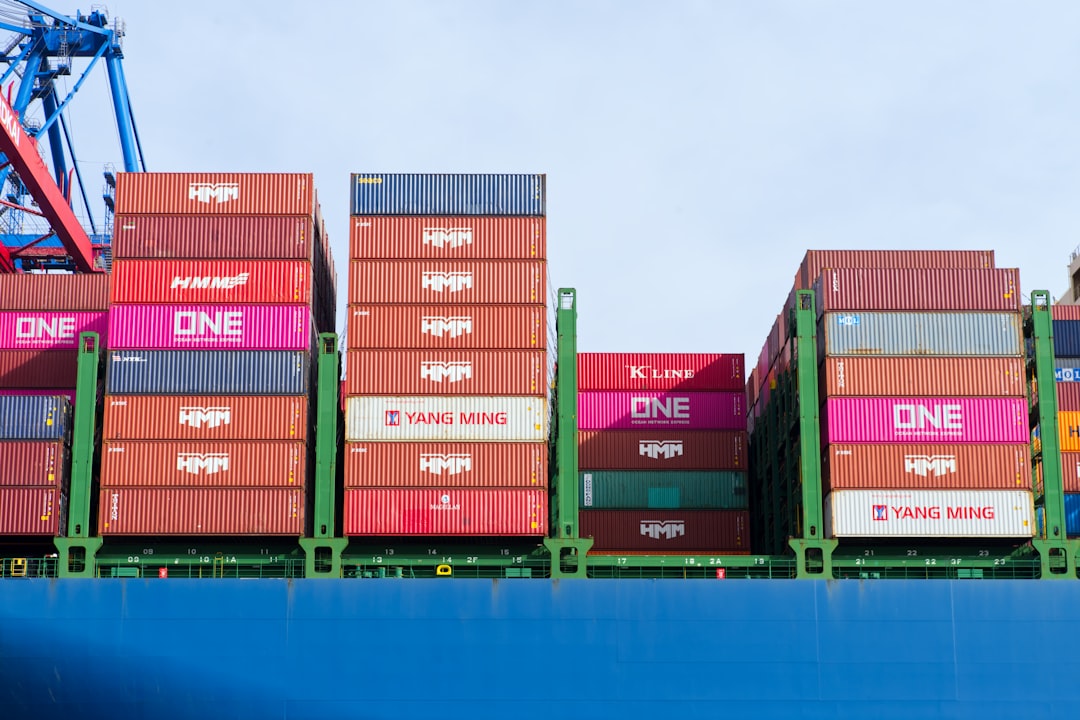Managing your company’s logistics is a never-ending task, but plenty of services can help give you an edge. Both freight brokers and freight forwarders can help you ship products cheaply and efficiently, but choosing the right one depends on your needs and shipping volume. You may also want to consider the kind of shipment visibility they offer and how they incorporate the latest technological advances.
Trackonomy is pleased to provide a brief introduction to the freight forwarder vs broker difference. We’ll tell you what questions you need to ask to find your ideal freight partner and explain how our state-of-the-art technology can revolutionize the way you optimize your supply chain management.
Understanding the Basics: Freight Forwarders and Brokers Defined
Both freight brokers and freight forwarders serve as intermediaries in the shipping process, helping cargo move efficiently and safely from shipper to receiver. They contact carriers and negotiate rates for you, allowing you to spend more time focused on your core business. However, their responsibilities and the liability they have over their cargo differ in some major ways.
A license from the Federal Motor Carrier Safety Administration, or FMCSA, is required for both brokers and forwarders. An FMCSA license lets you know that a broker or forwarder has sufficient insurance. Generally, brokers must carry a $75,000 bond, and forwarders must have minimum insurance of $10,000 per incident. Brokers are not required to insure their shipments, though many do.
What Is a Freight Forwarder?
The main difference between freight brokering and freight forwarding is that a forwarder takes possession of the items to be shipped. They may pack items, store them, consolidate them with other items, or even ship them under their authority. This gives them much more flexibility when it comes to planning routes and optimizing rates, though it means taking on more liability and responsibilities than a broker does.
Brokers are responsible for managing the documentation for a shipment, including the bill of lading, insurance paperwork, and more.
Freight forwarders are licensed to handle international trade and shipments. They keep track of ever-changing customs regulations, coordinate customs clearance, and perform proper labeling that shows the language and measurement system of the destination country. They also troubleshoot any issues that may come up in international shipping.
If freight forwarders operate their own vehicles, they are also responsible for registering a DOT number and reporting information about vehicle safety back to the government. If a forwarder does not operate its own vehicles, they do not need a DOT number.
What Is a Freight Broker?
Unlike a freight forwarder, a freight broker never takes possession of the shipment. Their responsibility involves connecting with carriers and negotiating the lowest rates possible on behalf of the client.
That may sound like they’re just a middleman, but brokers do a lot. In addition to negotiating rates with carriers, brokers help track shipments and keep both the shipper and the carrier in the loop about any possible delays. It’s like having an extra set of eyes on your freight shipment.
Brokers leverage their existing relationships with freight carriers to get the lowest possible shipping rates. Carriers like working with brokers because brokers can offer a consistent supply of cargo, allowing them to ship more cheaply and efficiently. Clients like working with brokers because they get access to lower rates. Brokers can also provide lower prices by working with carriers to form complete shipments out of LTL loads.
Freight brokers make their money by charging a small commission on each load they handle. They’re not licensed to handle international shipping, so you may need to hire customs brokers if a shipment crosses borders.
When to Use a Freight Forwarding vs Freight Brokerage
So, when do you use a freight broker and when do you opt for a freight forwarder? That comes down to the size of your business, the kind of shipping support you need, and whether you already have existing transportation relationships.
Typically, businesses with less complex freight shipping needs choose a broker, while businesses with a more complicated supply chain go with a forwarder.
Choosing a Freight Forwarder
The more complex your shipping situation, the more likely you are to want a freight forwarder. Forwarders have more responsibility and liability over their shipments, which can free up your time and energy for other parts of your business.
Working with a forwarder is the best choice if your business handles international shipments. They can prepare the customs documents needed for your shipment and troubleshoot any issues that might come up. Forwarders can also prevent problems by staying on top of customs and tariff regulations.
Forwarders can also help you handle multimodal shipments, as well as consolidate your shipments into larger loads.
Choosing a Freight Broker
Working with a freight broker is a great way to get serious savings for your business. A broker’s existing relationships with a freight carrier can help them negotiate lower rates, while working with multiple shipments helps them optimize cargo space and pass the savings on to you.
Brokers can also be quite valuable if you frequently need shipping at a moment’s notice. While you may pay more for a rush job, a broker’s relationships and knowledge of routes can help your items get where they need to go at the lowest price available.
Freight brokers typically focus on domestic freight, but some coordinate international shipments in partnership with forwarders or NVOCCs.
How Technology Enhances Freight Coordination
Technology has always played a role in freight coordination, but new advances make shipping faster and more efficient than ever before. Digital platforms can offer you real-time tracking, document display, and information you can use to improve your system and build automation solutions.
Real-Time Tracking
Making sure your shipment arrives safely and undamaged is vital, especially if you work in an industry that handles perishable products. Businesses use state-of-the-art sensor technology to track KPIs such as temperature and location in real time. Information from sensors can also help you deal with last-mile delivery challenges by identifying bottlenecks.
Having a lot of data is great, but it’s all just numbers until you understand and analyze what they mean. Trackonomy’s unified platform gives you visibility over your whole workflow, allowing you to turn data into decisions. Instant notifications let you deal with problems as soon as they come up, and you can even use the information you receive to automate workflows.
Automation
From algorithms that predict shipping prices to AI that can plan better routes, automation is helping every part of the logistics industry be more efficient. Businesses are even putting robots to work in warehouses, reducing the strain on human workers while speeding up processing time.
Automation isn’t the same for every industry, though. Intelligent technology from Trackonomy can help you combine data from all parts of your organization, allowing you to find key insights that can help you implement and improve your automation systems. Our solutions are flexible and easily scalable, growing as your business does.
Choosing the Right Logistics Partner for Your Supply Chain

Shipping can be make-or-break for your business, so choosing the right logistics industry partner matters. Low freight rates are great, but finding value for money is much more important. Some questions you may want to ask include:
- Are they licensed through the FMCSA?
- How familiar are they with your industry?
- Can you get in touch with your point of contact?
- What kind of cargo insurance do they have?
- How does the claims process work?
- Do the carriers they work with operate safely?
- Are other customers satisfied?
While different businesses may want different things out of their logistics partners, every broker or forwarder should be transparent, reliable, and responsive. You need to trust that your shipments will be delivered on time and that any problems will be resolved quickly.
Tech-enabled solutions like Trackonomy do more than get your goods from point A to point B: they help you optimize the whole shipping process. Our real-time data tracking puts vital information about your shipment at your fingertips, while our end-to-end visibility helps you identify bottlenecks and other issues. We don’t use technology as a one-size-fits-all solution either: instead, we work with you to develop individualized strategies tailored to your industry.
Trackonomy: Your New Logistics Technology
The choice of freight forwarder vs. broker can resonate throughout your whole organization. Understanding what kind of freight industry help you need and asking the right questions are your first steps to finding a reliable and results-driven partner. Don’t just settle for good solutions when you could be getting great ones—technology can help you optimize every part of your shipping system.
From last-mile systems that offer package-level visibility to predictive maintenance that offers optimized schedules for your entire organization, flexible solutions from Trackonomy can give your company the logistics edge. Contact us today to learn more about our innovative smart technology platforms and request a free demo.
